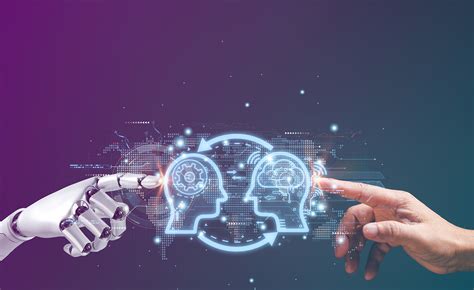The world of biotech is on the cusp of a revolution, and artificial intelligence (AI) is leading the charge. From personalized medicine to gene editing, AI is transforming the way we approach biotechnology. In this article, we'll explore five ways AI is revolutionizing biotech and what this means for the future of healthcare.
The Power of AI in Biotech
AI has the potential to transform biotech in ways we never thought possible. By analyzing vast amounts of data, identifying patterns, and making predictions, AI can help researchers and scientists accelerate the discovery of new treatments and therapies. Whether it's developing personalized medicine or identifying new targets for disease treatment, AI is quickly becoming an indispensable tool in the biotech industry.
1. Personalized Medicine
One of the most significant applications of AI in biotech is personalized medicine. By analyzing a patient's genetic profile, medical history, and lifestyle, AI can help doctors tailor treatment plans to individual needs. This approach has shown significant promise in treating complex diseases such as cancer, where traditional treatments often fail to deliver.
For example, AI-powered platforms like Foundation Medicine's FoundationOne CDx can analyze a patient's tumor genome and identify specific mutations that can inform treatment decisions. This personalized approach has been shown to improve patient outcomes and increase the effectiveness of treatments.

2. Gene Editing
Gene editing technologies like CRISPR/Cas9 have revolutionized the field of biotech, enabling scientists to edit genes with unprecedented precision. AI is now being used to improve the accuracy and efficiency of gene editing techniques.
For instance, AI-powered platforms like CRISPR-Cas9 can analyze genomic data and identify the most effective guide RNAs for editing specific genes. This approach has shown significant promise in treating genetic diseases such as sickle cell anemia and muscular dystrophy.

3. Drug Discovery
AI is also transforming the field of drug discovery, enabling researchers to identify new targets for disease treatment and develop more effective treatments. By analyzing vast amounts of data, including genomic data, medical literature, and clinical trial results, AI can help researchers identify patterns and connections that may not be apparent to humans.
For example, AI-powered platforms like Atomwise's AtomNet can analyze genomic data and identify potential targets for disease treatment. This approach has shown significant promise in identifying new treatments for complex diseases such as cancer and Alzheimer's disease.

4. Synthetic Biology
Synthetic biology involves the design and construction of new biological systems, such as genetic circuits and biological pathways. AI is now being used to optimize the design of these systems, enabling researchers to create more efficient and effective biological pathways.
For instance, AI-powered platforms like Zymergen's Zymergen Engine can analyze genomic data and identify the most effective genetic pathways for producing specific biomolecules. This approach has shown significant promise in producing sustainable biofuels and bioproducts.

5. Biomanufacturing
Biomanufacturing involves the use of biological systems to produce biomolecules, such as biopharmaceuticals and bioproducts. AI is now being used to optimize biomanufacturing processes, enabling researchers to produce biomolecules more efficiently and effectively.
For example, AI-powered platforms like Ginkgo Bioworks' Bioworks can analyze genomic data and identify the most effective biological pathways for producing specific biomolecules. This approach has shown significant promise in producing sustainable bioproducts and biopharmaceuticals.

Gallery of Biotech






Frequently Asked Questions
What is AI in biotech?
+AI in biotech refers to the use of artificial intelligence technologies, such as machine learning and deep learning, to analyze and interpret biological data.
How is AI used in personalized medicine?
+AI is used in personalized medicine to analyze a patient's genetic profile, medical history, and lifestyle to tailor treatment plans to individual needs.
What is gene editing?
+Gene editing is a technology that enables scientists to edit genes with unprecedented precision, allowing for the treatment of genetic diseases.
Conclusion
AI is revolutionizing the field of biotech, enabling researchers to accelerate the discovery of new treatments and therapies. From personalized medicine to gene editing, AI is transforming the way we approach biotechnology. As AI continues to advance, we can expect to see even more exciting developments in the field of biotech.
